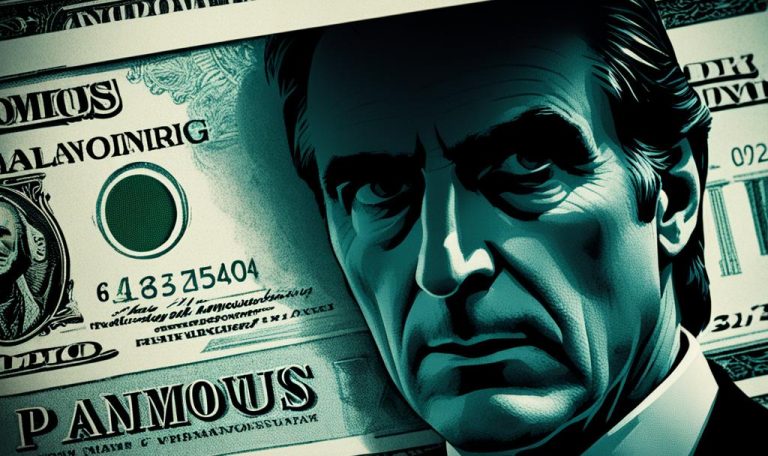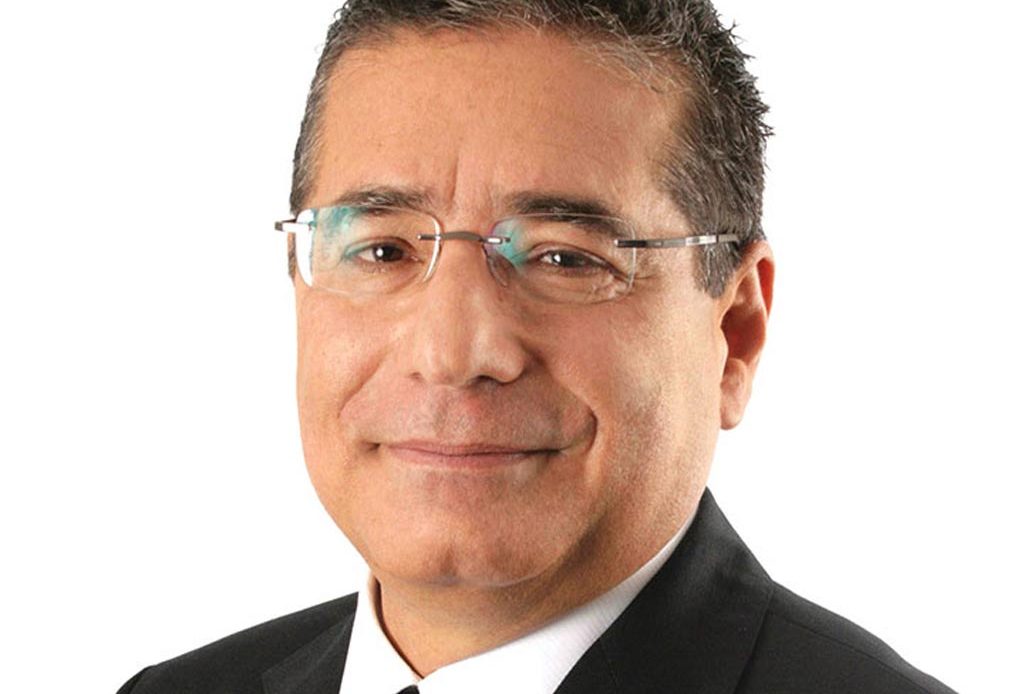Cover image by: De Jandrade97 – Trabajo propio, CC BY-SA 4.0, https://commons.wikimedia.org/w/index.php?curid=40133126
Panamanian lawyer Ramon Fonseca, one of the heads of the now-defunct law firm Mossack Fonseca, has died while awaiting sentencing in his money-laundering trial. Fonseca, 71, passed away in a hospital in Panama City. Mossack Fonseca was at the center of the global “Panama Papers” scandal, which revealed how many of the world’s wealthy stashed assets in offshore companies, triggering scores of investigations around the globe. Prosecutors had requested a 12-year prison sentence for Fonseca and his colleague Jurgen Mossack, the firm’s founders, who were on trial alongside more than two dozen others, mainly former employees. Fonseca did not attend the hearings due to health concerns.
Key Takeaways
- Ramon Fonseca, a key figure in the Panama Papers scandal, has died while awaiting sentencing in a money-laundering trial.
- Mossack Fonseca, the law firm at the center of the Panama Papers scandal, facilitated the use of offshore tax havens by the world’s wealthy.
- The leaked documents from Mossack Fonseca triggered global investigations into tax evasion and money laundering.
- Prosecutors had requested a 12-year prison sentence for Fonseca and his colleague Jurgen Mossack, the firm’s founders.
- Fonseca’s death comes as the Mossack Fonseca firm has already closed due to the reputational damage from the scandal.
Introduction: The Panama Papers Scandal
The “Panama Papers” scandal was a global upheaval that centered around the now-defunct Mossack Fonseca law firm, which was founded in Panama. Leaked documents from the firm revealed how many of the world’s wealthy were exploiting offshore companies to conceal their assets, triggering a wave of investigations into tax evasion and money laundering around the globe.
Origins of the Mossack Fonseca Law Firm
Mossack Fonseca, the law firm at the heart of the Panama Papers scandal, was founded in Panama in 1977 by partners Jurgen Mossack and Ramon Fonseca. Over the decades, the firm grew to become one of the world’s most prominent providers of offshore financial services, catering to a clientele that included billionaires, politicians, and other influential figures.
Leaked Documents Reveal Offshore Tax Havens
The trove of 11.5 million leaked files from Mossack Fonseca, known as the Panama Papers, exposed the intricate network of offshore companies and tax havens that the firm used to help its clients conceal assets and avoid taxes. These revelations triggered a global outcry, as the documents implicated a vast array of high-profile individuals in financial secrecy and potentially illicit activities.
Ramon Fonseca: Key Figure in the Scandal
Ramon Fonseca, a Panamanian lawyer, was a central figure in the Panama Papers scandal that rocked the global financial landscape. As one of the heads of the now-defunct Mossack Fonseca law firm, Fonseca played a pivotal role in the scandal that exposed how the world’s wealthy were using offshore companies to stash assets and avoid taxes.
The leaked documents from Mossack Fonseca revealed the firm’s involvement in helping clients, including billionaires, politicians, and sports stars, establish offshore entities to conceal their assets. This widespread practice of using tax havens to evade taxes and enable money laundering led to widespread investigations and renewed calls for greater financial transparency around the world.
Fonseca’s role as a co-founder of Mossack Fonseca, the law firm at the heart of the Panama Papers scandal, cemented his status as a key figure in this global corruption scandal. The revelations from the leaked files sparked a global outcry and triggered scores of investigations into tax evasion and money laundering schemes facilitated by the firm.
Panama Papers’ Ramon Fonseca Dies Before Sentencing
Ramon Fonseca, one of the founders of the Mossack Fonseca law firm at the center of the Panama Papers scandal, passed away while awaiting sentencing in his money-laundering trial. Fonseca, 71, died in a hospital in Panama City, his lawyer citing health concerns as the reason for his absence from the trial proceedings, which had opened on April 8.
Passing Away While Awaiting Trial Outcome
Prosecutors had requested a 12-year prison sentence for Fonseca and his colleague Jurgen Mossack, the firm’s other founder, who were on trial alongside more than two dozen others, mainly former employees of Mossack Fonseca. The Panama Papers scandal had exposed how the now-defunct law firm helped the world’s wealthy stash assets in offshore tax havens, triggering widespread investigations into tax evasion and money laundering.
Health Concerns Cited for Absence in Court
Fonseca’s death comes as a significant development in the ongoing fallout from the Panama Papers revelations. The leaked documents from Mossack Fonseca had implicated numerous high-profile individuals, including billionaires, politicians, and sports stars, in these illicit financial activities, sparking a global crackdown on the use of offshore companies to conceal assets and avoid taxes.
The Mossack Fonseca Money Laundering Case
Prosecutors leveled serious allegations against the founders of the Mossack Fonseca law firm, Ramon Fonseca and Jurgen Mossack, accusing them of “concealing, covering up and providing false information to banks for the opening of accounts and concealing ownership of assets.” The pair was also alleged to have “received and transferred funds from illicit activities in Germany and Argentina.”
Prosecutors’ Allegations and Sentencing Requests
Prosecutors had requested a 12-year prison sentence for Fonseca and Mossack, the law firm’s co-founders, who were on trial alongside more than two dozen others, primarily former employees of the firm. The charges stemmed from the explosive revelations in the Panama Papers scandal, which exposed how Mossack Fonseca had helped the world’s wealthy stash assets in offshore tax havens to evade money laundering and taxes.
Charges Against Firm’s Founders and Employees
The Mossack Fonseca case had become a major focus for prosecutors seeking to hold the firm’s leadership and staff accountable for their role in facilitating illicit financial activities. With the sentencing of Fonseca and Mossack still pending at the time of Fonseca’s death, the case highlighted the ongoing efforts to unravel the complex web of corruption and financial secrecy exposed by the Panama Papers.

Implications of the Panama Papers Leaks
The trove of 11.5 million leaked files from the Mossack Fonseca law firm, known as the Panama Papers, exposed how many of the world’s wealthy were using offshore companies to conceal assets and avoid taxes. These revelations triggered scores of investigations into tax evasion and money laundering around the globe, shining a light on the shadowy world of offshore financial secrecy.
Unveiling Offshore Financial Secrecy
The Panama Papers leaks provided an unprecedented glimpse into the intricate web of offshore companies and tax havens used by the global elite to shield their wealth from public scrutiny and taxation. The leaked documents exposed how the Mossack Fonseca law firm facilitated the creation of these opaque financial structures, allowing the wealthy to circumvent regulations and maintain their financial privacy.
Impact on Global Tax Evasion Investigations
The revelations from the Panama Papers sparked a wave of tax evasion investigations worldwide, as authorities sought to uncover the true extent of illicit financial activities enabled by the use of offshore companies. Governments from Europe to Asia launched probes, sharing information and collaborating to crack down on these complex global impact schemes.
Fallout and Legacy of Mossack Fonseca
The Mossack Fonseca law firm, at the center of the global Panama Papers scandal, faced significant reputational damage in the wake of the revelations. In 2018, the firm announced it would be closing down due to the “irreparable damage” to its reputation caused by the leaked documents.
The Mossack Fonseca firm had facilitated offshore tax evasion and money laundering schemes for influential figures, including billionaires, politicians, and sports stars. The explosive fallout from the scandal ultimately led to the firm’s closure, marking the end of an era for the once-prominent Panamanian law firm.
The legacy of the Mossack Fonseca scandal has been far-reaching, sparking renewed calls for greater financial transparency and regulatory reforms to combat the use of offshore tax havens for illicit activities. The revelations have underscored the need for robust international cooperation and whistleblower protections to unveil and curb such global corruption.

Offshore Tax Havens and Financial Transparency
The Panama Papers scandal shed light on the widespread use of offshore tax havens by the wealthy and influential to conceal assets and avoid taxes. These revelations have renewed calls for greater financial transparency and regulatory reforms to combat tax evasion and money laundering. The leaked documents, supplied by an anonymous whistleblower, have also sparked increased public scrutiny of the shadowy world of offshore finance.
Renewed Calls for Regulatory Reforms
The Panama Papers scandal has highlighted the need for tighter regulations and stricter enforcement to curb the misuse of offshore tax havens. Authorities around the world are working to close loopholes and implement policies that enhance financial transparency, making it harder for individuals and corporations to hide assets and evade taxes. This renewed push for regulatory reforms aims to create a more equitable and accountable global financial system.
Whistleblower Revelations and Public Scrutiny
The trove of documents leaked by the anonymous whistleblower has shone a light on the secretive practices of the offshore tax haven industry, triggering increased public scrutiny and demands for greater accountability. This heightened awareness has prompted governments and international organizations to take more aggressive action in combating tax evasion and money laundering facilitated by the use of anonymous shell companies and other opaque financial structures.
Political Figures and Wealthy Individuals Implicated
The Panama Papers scandal exposed how the Mossack Fonseca law firm had facilitated offshore tax evasion and money laundering schemes for a wide range of high-profile individuals. The trove of 11.5 million leaked files implicated numerous billionaires, politicians, and sports stars in these illicit financial activities.
High-Profile Names in the Panama Papers
Among the notable figures named in the Panama Papers were Russian President Vladimir Putin’s close associates, including cellist Sergei Roldugin, who was revealed to have been the beneficial owner of several offshore companies. The leaks also implicated Iceland’s former Prime Minister Sigmundur Davíð Gunnlaugsson, who resigned from office in the aftermath of the scandal.
Prominent business leaders such as Amancio Ortega, the founder of Zara, and Alisher Usmanov, a Russian billionaire, were also found to have used offshore entities to conceal their wealth. The revelations prompted widespread investigations around the world as authorities sought to uncover the full extent of the corruption and financial secrecy enabled by the use of offshore companies.
Global Efforts to Combat Money Laundering
The Panama Papers scandal has spurred a global crackdown on money laundering and tax evasion. Authorities around the world have intensified their investigations and cooperation to tackle the systemic use of offshore companies for concealing assets and avoiding taxes. Regulatory reforms and new initiatives have been introduced to increase financial transparency and close the loopholes that enable these illicit financial activities.
International Cooperation and Initiatives
In the aftermath of the Panama Papers revelations, governments and financial institutions have made strides in enhancing international cooperation to combat money laundering. Enhanced information-sharing, joint task forces, and coordinated enforcement actions have become increasingly common as nations work together to disrupt the global networks facilitating these illicit practices.
Regulatory bodies have also introduced a range of new initiatives aimed at promoting greater financial transparency. These include stricter customer due diligence requirements, beneficial ownership registries, and tighter controls on the use of anonymous shell companies. By closing the loopholes that enable money laundering, these efforts seek to undermine the foundations of the offshore financial system that the Panama Papers exposed.
| Global Initiatives to Combat Money Laundering | Key Objectives |
|---|---|
| Financial Action Task Force (FATF) Recommendations | Set international standards for anti-money laundering and counter-terrorist financing measures |
| Beneficial Ownership Transparency | Require disclosure of the real owners of companies and trusts to limit the use of anonymous shell entities |
| Automatic Exchange of Tax Information | Enable cross-border sharing of financial account data to detect tax evasion and money laundering |
| Whistleblower Protection Laws | Encourage and safeguard individuals who expose financial crimes and corruption |
These global efforts to combat money laundering and increase financial transparency have gained momentum in the wake of the Panama Papers scandal. By working together across borders and closing the loopholes that enable these illicit activities, authorities aim to disrupt the networks that have allowed the wealthy and powerful to hide their assets and dodge taxes for far too long.
Lessons from the Panama Papers Scandal
The Panama Papers scandal has provided valuable lessons about the pressing need for greater financial transparency and the inherent dangers of offshore tax havens being used to facilitate corruption, tax evasion, and money laundering. The revelations have highlighted the importance of robust regulations, international cooperation, and whistleblower protections to effectively combat these global issues.
The fallout from the scandal has also demonstrated the significant reputational damage that can result from facilitating illicit financial activities. The lessons learned from the Panama Papers emphasize the urgent need for greater transparency and accountability in the financial sector, as well as the crucial role that vigilant oversight and public scrutiny can play in exposing and addressing such large-scale corruption and tax evasion schemes.
Conclusion
The death of Ramon Fonseca, a central figure in the notorious Panama Papers scandal, comes as the Mossack Fonseca law firm at the heart of the global corruption revelations has already been shuttered due to the irreparable damage to its reputation. The leaked documents exposed how this Panamanian firm helped the world’s wealthiest individuals and entities stash their assets in offshore tax havens, leading to widespread investigations into tax evasion and money laundering.
The Panama Papers scandal has spurred renewed calls for greater financial transparency and regulatory reforms to combat these illicit activities on an international scale. Authorities around the world have launched coordinated efforts to crack down on the use of offshore companies to conceal assets and avoid taxes. As the fallout from this scandal continues to reverberate, it serves as a stark reminder of the need for robust oversight and accountability in the global financial system.
While the passing of Ramon Fonseca brings an end to a central chapter in the Panama Papers saga, the larger lessons of this scandal will continue to shape the future of financial regulation and transparency. The revelations have underscored the vital role that whistleblowers and investigative journalism can play in exposing corruption and holding the powerful to account. As the world grapples with the complex challenges posed by offshore tax havens and money laundering, the Panama Papers will stand as a cautionary tale and a catalyst for meaningful reform.



